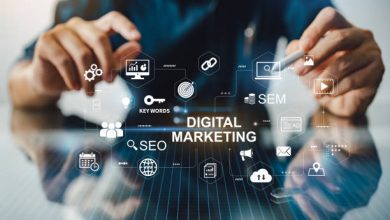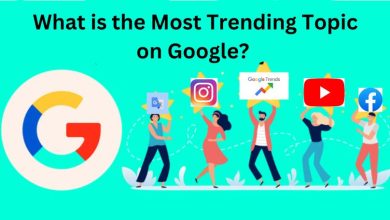B2B Digital Marketing: Targeting Professionals in 2025

The landscape of B2B digital marketing has evolved dramatically, and as we enter 2025, businesses face a plethora of opportunities and challenges in targeting professionals. With advancements in technology, changing buyer behaviors, and increased competition, marketers must adapt their strategies to remain relevant and effective. Here, we delve into the strategies and trends shaping B2B digital marketing in 2025 and how to connect meaningfully with professional audiences.
Understanding the Modern B2B Buyer
In 2025, B2B buyers are more informed and autonomous than ever before. The decision-making process involves extensive online research, peer reviews, and consultations. Professionals demand personalized experiences and value-driven interactions. Key traits of modern B2B buyers include:
- Digital Savviness: With AI-powered tools and search engines, professionals can easily compare products, read reviews, and access data-driven insights.
- Preference for Personalization: Generic marketing messages fail to resonate. Buyers expect tailored content that speaks directly to their needs.
- Collaborative Decision-Making: B2B purchases often involve multiple stakeholders, requiring strategies that address various personas within an organization.
Top Trends Shaping B2B Digital Marketing in 2025
- Hyper-Personalized Content Marketing
Generic content is no longer sufficient. Businesses need to create highly targeted content that addresses specific pain points, industries, and roles. AI tools enable marketers to analyze vast datasets and craft personalized emails, blogs, whitepapers, and video content that resonate with individual professionals.
- Account-Based Marketing (ABM)
ABM has become a cornerstone of B2B digital marketing. By focusing on high-value accounts and delivering tailored campaigns, businesses can build stronger relationships with key stakeholders. In 2025, ABM is enhanced by AI-driven insights, enabling real-time personalization and campaign adjustments.
- Video Marketing Dominance
Video remains a powerful medium for B2B communication. Professionals prefer concise, visually engaging content, whether it’s product demos, webinars, or case studies. Interactive videos and live streams further enhance engagement by fostering real-time interaction.
- AI-Powered Insights and Automation
Artificial intelligence continues to revolutionize B2B marketing. From predictive analytics to chatbots, AI helps businesses understand buyer intent, automate repetitive tasks, and optimize campaigns. Predictive AI can identify potential leads, while sentiment analysis can fine-tune messaging to align with audience expectations.
- Social Selling and Professional Networking
LinkedIn, Twitter, and niche professional platforms are vital for reaching decision-makers. Social selling—building relationships through social media—has grown significantly. Marketers can leverage thought leadership content, testimonials, and targeted ads to connect with professionals organically.
Effective Strategies for Targeting Professionals
- Build Authority Through Thought Leadership
Publishing high-quality, insightful content positions your brand as an industry authority. Whitepapers, eBooks, blogs, and podcasts are effective formats. Engage professionals by addressing emerging trends, offering actionable advice, and sharing case studies.
- Leverage Data-Driven Marketing
Data is the backbone of successful B2B marketing. Use analytics to identify patterns in buyer behavior, track campaign performance, and segment audiences. Tools like Google Analytics, HubSpot, and Salesforce provide valuable insights to refine your strategy.
- Prioritize SEO and Search Intent
Professionals rely on search engines to find solutions. Optimizing your website and content for relevant keywords and search intent is critical. Focus on long-tail keywords, create pillar content, and ensure fast-loading, mobile-friendly pages.
- Offer Free Resources and Tools
Free tools, calculators, and templates attract professionals by providing immediate value. These resources also serve as lead magnets, capturing contact information for nurturing campaigns.
- Foster Community Engagement
Creating a sense of community strengthens brand loyalty. Host webinars, Q&A sessions, and interactive workshops. Encourage professionals to join exclusive groups on platforms like LinkedIn, where they can share insights and network.
Technologies Revolutionizing B2B Marketing
- Generative AI Tools
Platforms like ChatGPT and Jasper AI are transforming content creation. They help marketers draft compelling copy, generate ideas, and automate repetitive tasks, saving time and ensuring consistency.
- Advanced CRM Systems
Customer relationship management tools integrate seamlessly with marketing automation platforms, enabling better segmentation, lead scoring, and campaign tracking. These tools help deliver personalized experiences at scale.
- Immersive Experiences with AR/VR
Augmented and virtual reality are gaining traction in B2B marketing. Virtual product demonstrations, immersive trade shows, and interactive training sessions allow professionals to experience offerings firsthand, fostering deeper connections.
Overcoming Challenges in 2025
Despite technological advancements, B2B marketers face several challenges:
- Complex Buying Journeys: With multiple stakeholders involved, aligning messaging across all decision-makers can be difficult.
- Data Privacy Regulations: Stricter privacy laws require businesses to handle data responsibly while maintaining personalization.
- Cutting Through the Noise: The digital space is saturated. Standing out requires creativity, authenticity, and strategic investments.
To overcome these hurdles, businesses must prioritize transparency, deliver exceptional value, and continuously innovate their marketing approaches.
Measuring Success in B2B Digital Marketing
Tracking performance metrics ensures that your efforts yield results. Key performance indicators (KPIs) include:
- Lead Generation: Number and quality of leads generated.
- Engagement Rates: Click-through rates, time spent on content, and social media interactions.
- Conversion Rates: Percentage of leads turning into customers.
- Customer Retention: Lifetime value and repeat business metrics.
Utilize analytics tools and dashboards to monitor these KPIs, identify areas for improvement, and optimize campaigns in real-time.
The Future of B2B Digital Marketing
As we move further into 2025, B2B digital marketing will continue to evolve. Emerging technologies like block chain for secure transactions, 5G for enhanced connectivity, and AI for even deeper personalization will redefine how businesses engage professionals. Staying ahead requires agility, a customer-first approach, and a commitment to continuous learning.
In conclusion, targeting professionals in 2025 demands a blend of technology, creativity, and strategy. By understanding your audience, leveraging cutting-edge tools, and focusing on delivering value, you can build meaningful connections that drive business success. Embrace the change, innovate boldly, and position your brand as a trusted partner in the ever-changing B2B landscape.





